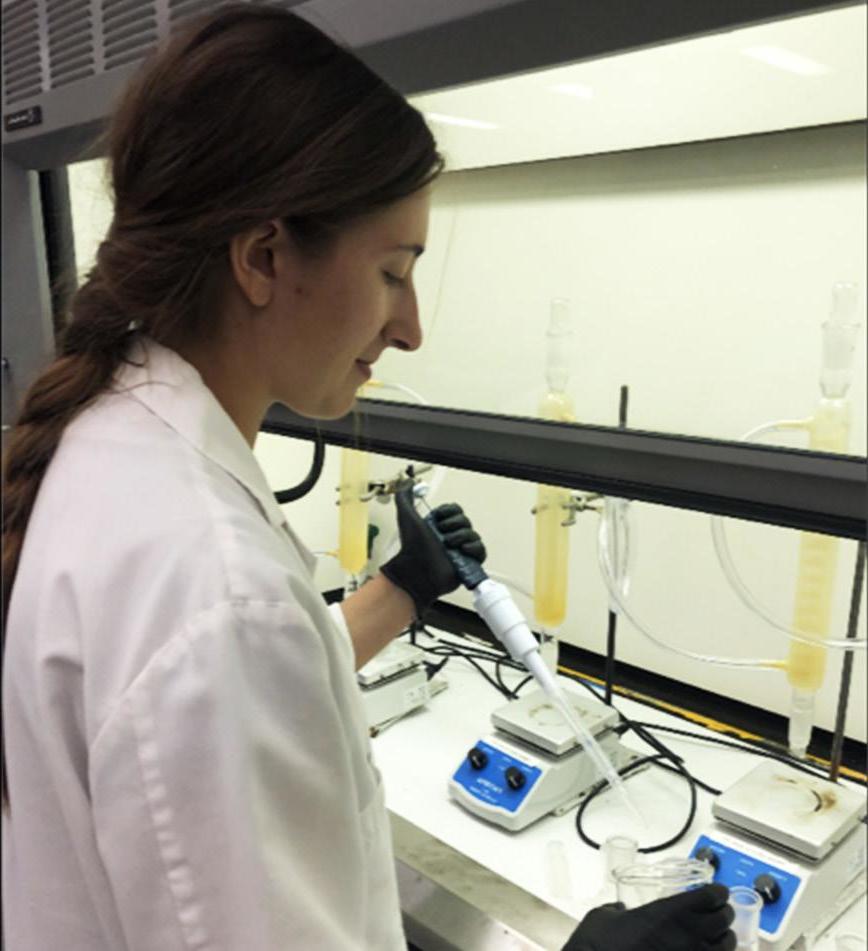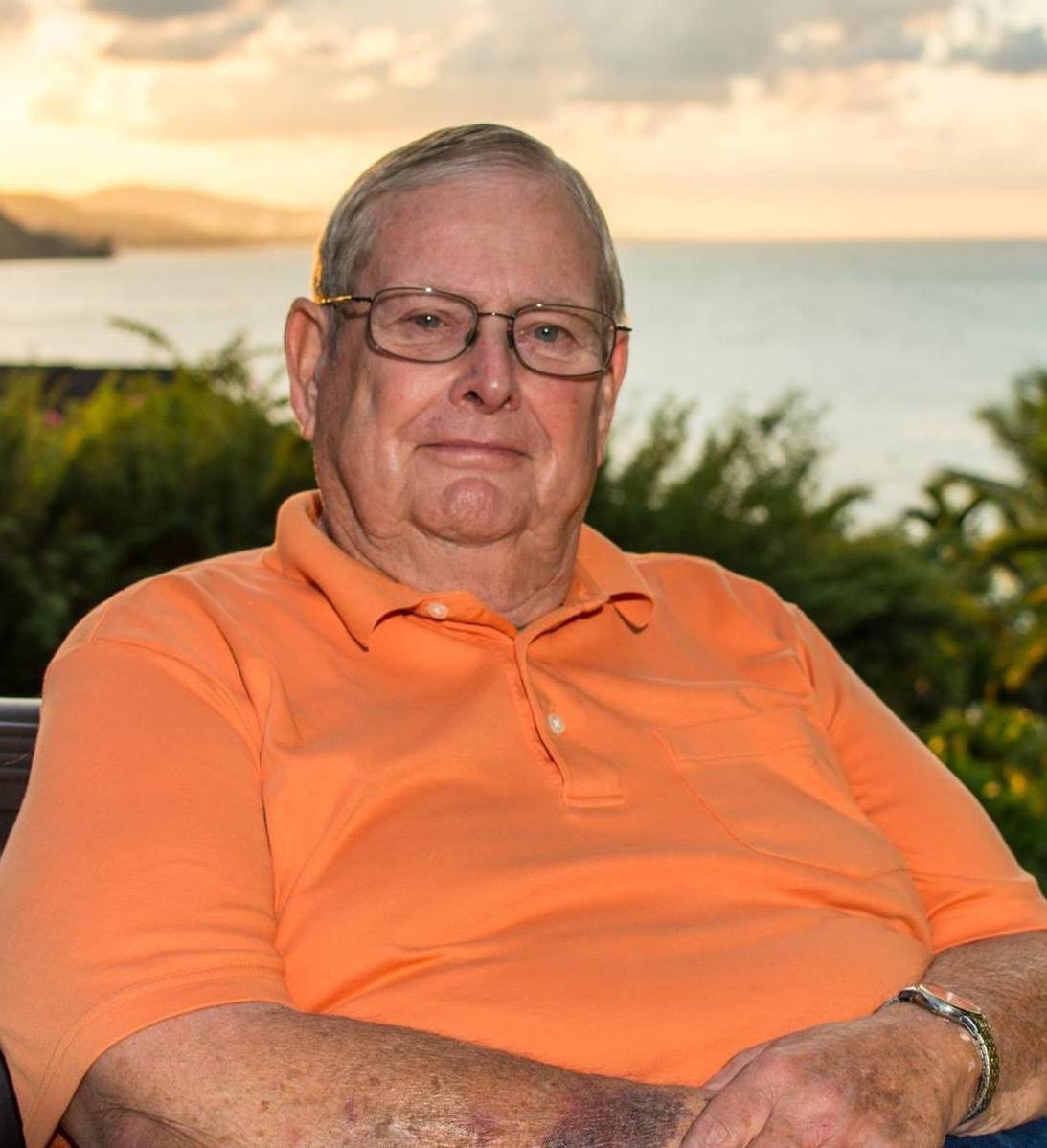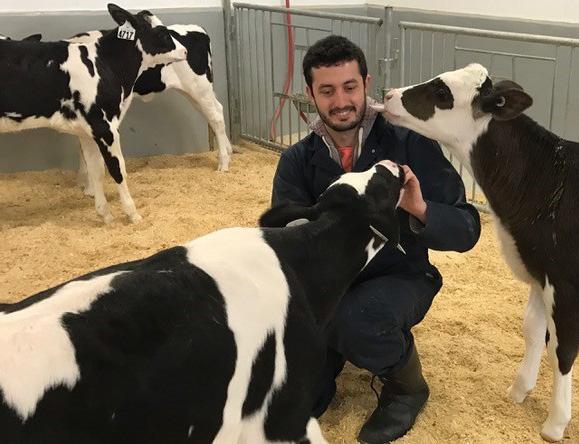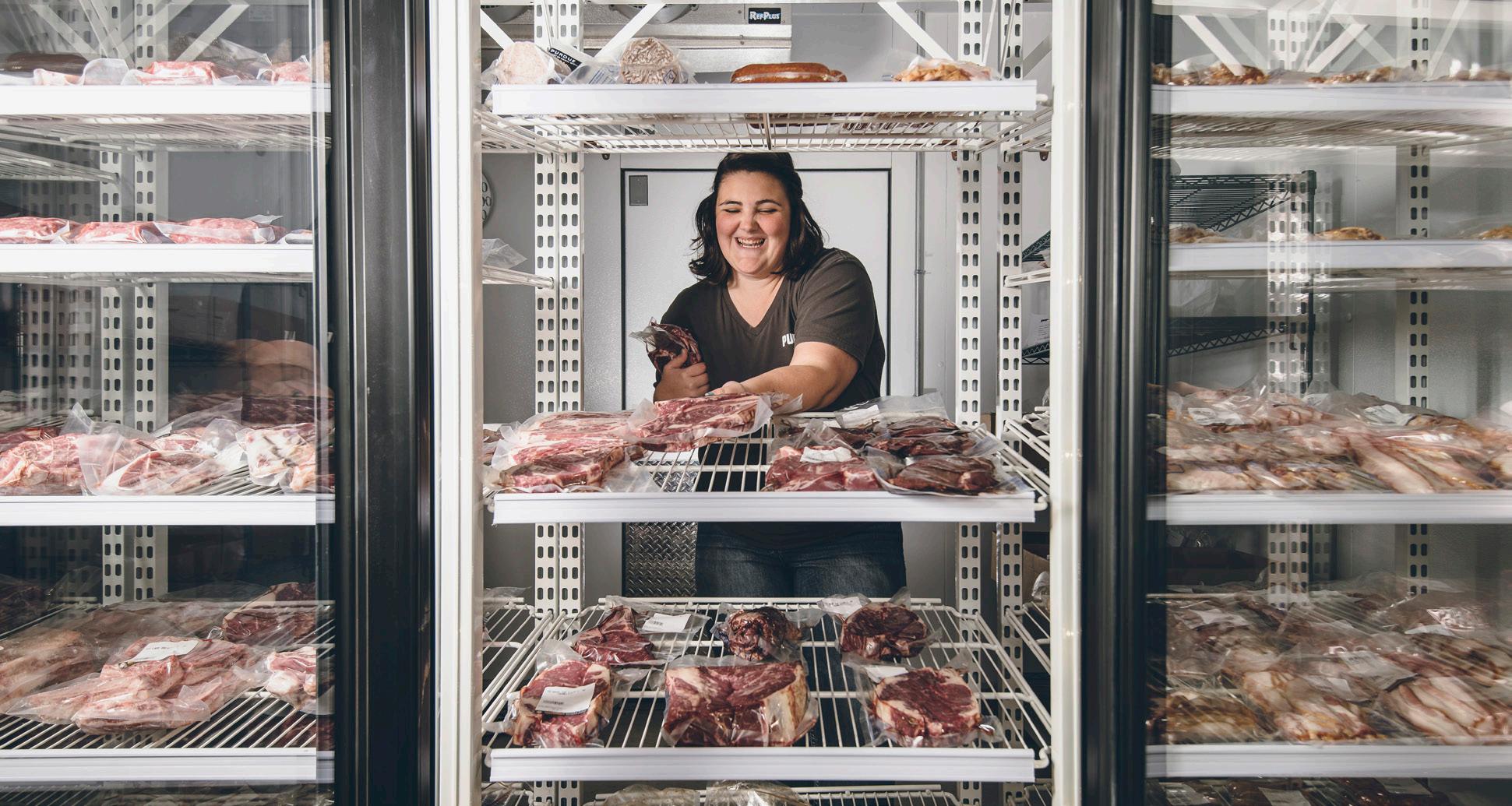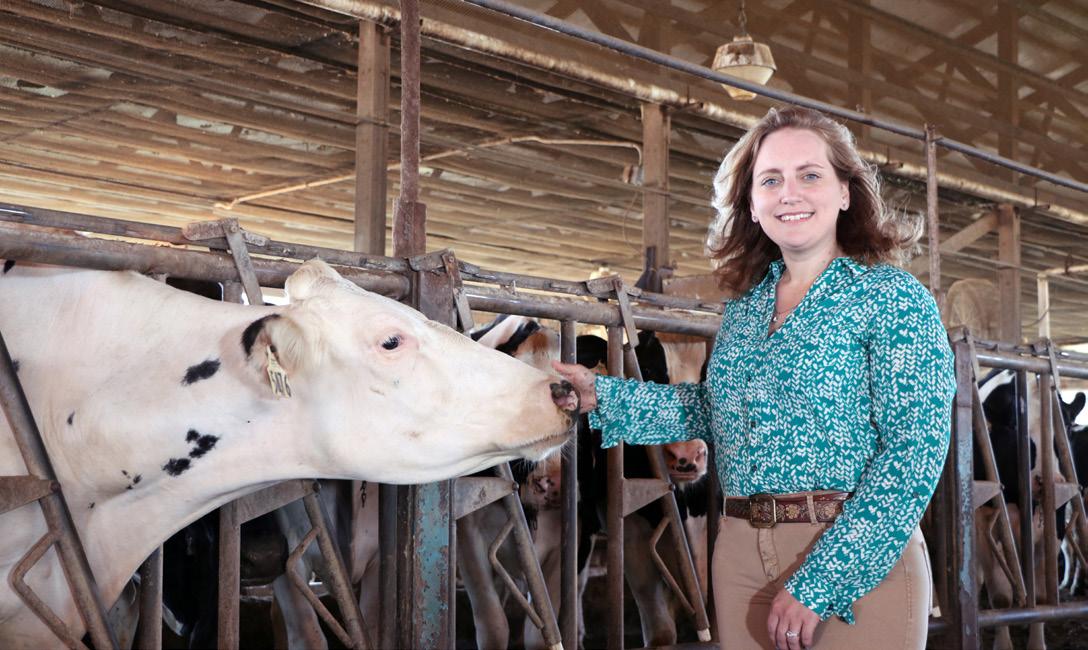
4 minute read
EXTENSION PROFILES
JACKIE BOERMAN DAIRY
COLLABORATION KEY TO SUCCESS FOR BOERMAN
Advertisement
Jackie Boerman, assistant professor of animal sciences, is no stranger to the dairy industry with experience and knowledge gained from dairies across the United States and the world.
“I really enjoy developing ideas, executing them and then learning throughout the entire process to better understand the dairy cow,” says Boerman.
Boerman concentrates her Purdue Extension efforts in three areas — commercial farm work related to nutrition and management, applied research conducted at ASREC and better utilization of farm data. She values collaboration with researchers and Extension personnel in different departments at the university and outside of Purdue.
Boerman and graduate student Tabitha (Steckler) Hurst recently authored the Purdue Extension publication “Lung Ultrasound Scoring: A Way to Visually Detect Lung Damage.” Respiratory disease is a costly leading cause of illness in dairy calves, but can be difficult to diagnose on-farm. Steckler and Boerman took new lung scanning technology to an Indiana commercial dairy farm to study how lung damage affects calf’s growth and productivity.
While in the early stages of development, Boerman is looking forward to a new Extension research project that will integrate multiple data sources generated on farms to better predict health, productivity and well-being of dairy cattle.
“We have to convey the things that we are learning at Purdue University through our research and get that information in the toolbox of people who are on farm, assisting or making the daily management decisions.”
WELFARE MARISA ERASMUS
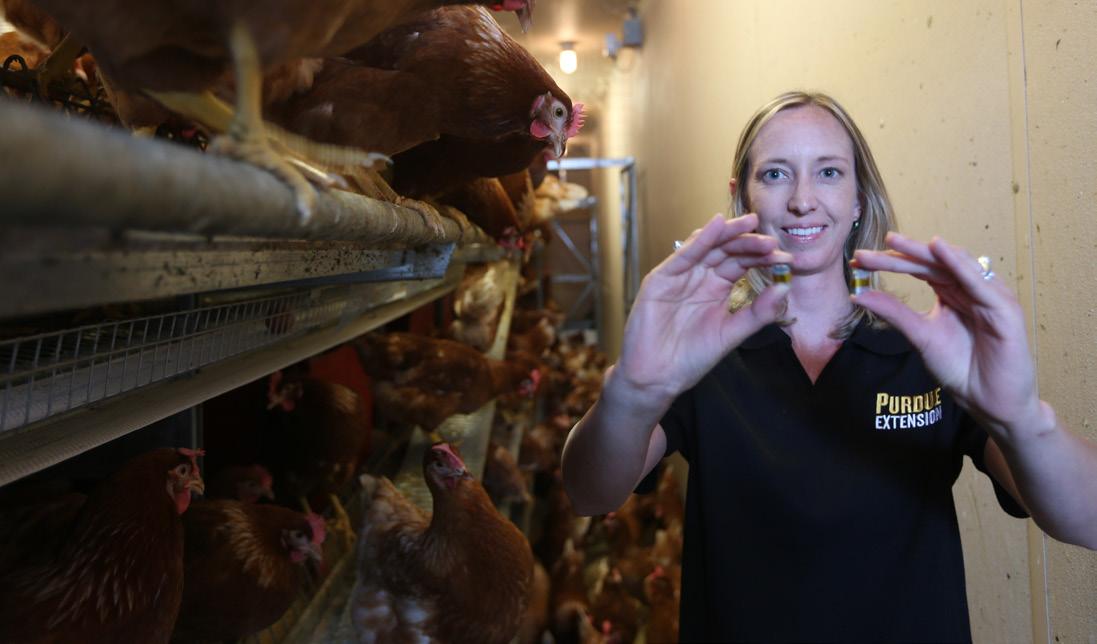
BRIDGING THE GAP BETWEEN ANIMAL PRODUCTION AND ANIMAL WELFARE
“Poultry are the most numerous of farm animals produced worldwide. However, concern for poultry welfare falls below that of other farm animals,” says Marisa Erasmus, assistant professor of animal sciences.
Erasmus addresses this disparity between poultry production and animal welfare in her research and development of Purdue Extension programs. Her current extension programs focus on three overarching problems: behavioral and welfare issues of poultry, using animal-based indicators to evaluate animal welfare and providing educational resources so consumers can learn about animal welfare.
As consumers demand more transparency about food production, the agriculture industry has an opportunity to explain how food is grown using sustainable and ethical methods. Erasmus embodies this transparency in her engagement with consumers through an animal welfare educational exhibit that has been featured at the Indiana State Fair and Purdue’s Spring Fest.
The exhibit shows consumers how producers care for common farm animals and the importance of animal well-being for animal production. After visiting the exhibit, consumers reported increased knowledge of animal welfare and planned to use the information in their daily lives.
For more information about Purdue Extension programs led by Erasmus:
Erasmus Lab Website: ag.purdue.edu/ansc/erasmus/
Erasmus Lab Email: aw@purdue.edu
POULTRY DARRIN KARCHER
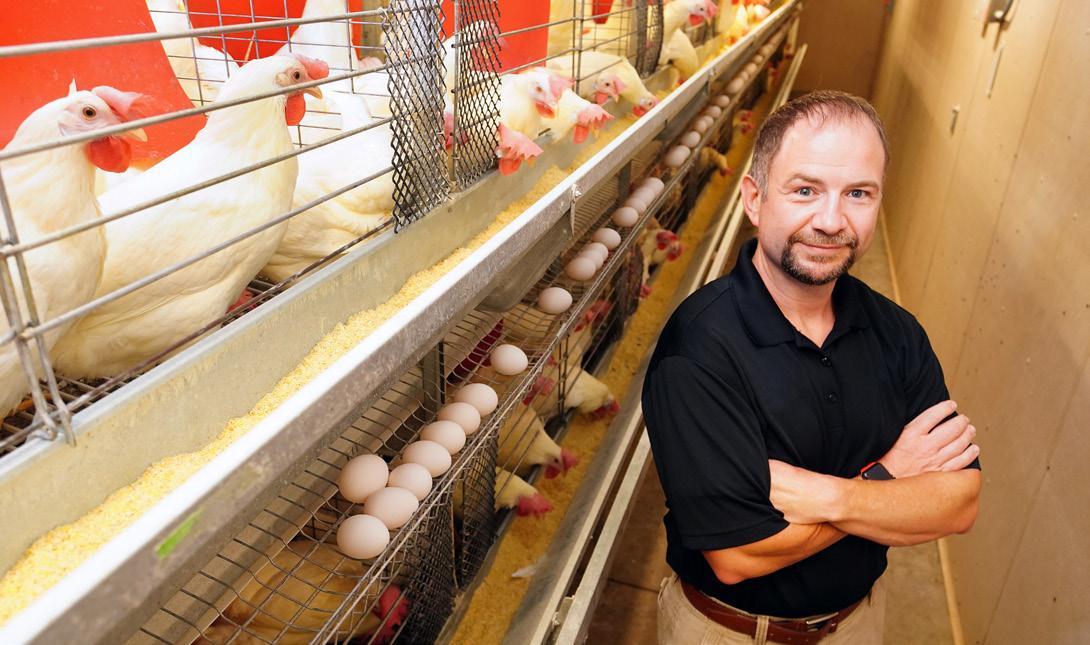
HIGH-QUALITY EGGS AND EDUCATION
Personalized and collaborative educational programs with a chance to gain insight from industry partners is what many producers want in professional development courses.
Darrin Karcher, associate professor of animal sciences, answered this need in the poultry industry with the development of Purdue Extension’s Shell Egg Academy (SEA), an educational program training workers on egg quality, food safety and the correlation between the two.
“Purdue Extension programs leverage our ability to actively engage with the community and stakeholders, find needs, research and develop programs to meet those needs, and deliver programs in a way that is forwardthinking and adaptable in addressing possible future problems,” says Karcher.
The SEA covers topics for table egg producers in two courses — live hen production and egg processing. It is the first program to focus on tying food safety to the live production aspect of producing eggs and the downstream effects in egg processing.
The course also provides participants opportunities to interact with state and federal regulatory agencies including the Food and Drug Administration, U.S. Department of Agriculture (USDA) Agricultural Marketing Service (AMS) and USDA Agricultural Research Service (ARS).
Karcher is also partnering with USDA AMS and ARS to produce a serires of egg sanitation processing videos hosted on Purdue Extension’s YouTube channel at puext.in/cleaneggs.
The series will include modules for training commercial egg industry production and processing employees as well as state and federal regulatory employees on pre-operation sanitation expectations.
TECHNOLOGY CHANGES MEAN NEW OPPORTUNITIES FOR GROWTH
Distance Education Coordinator Phil Reid manages the technology that delivers educational and outreach programs from Animal Sciences to audiences well beyond the Purdue campus.
Since joining the department in 2001, Reid’s skills have grown along with ever-changing communication strategies — from building websites to engaging audiences through interactive videography, blogging and online streaming. From a state-of-the-art studio in Creighton Hall, Reid produces The Beef Roundtable webcast and the podcasts Ag Law Today, Dairy Digest, and Sheep and Goat Topics, among others.
Reid wakes up between 3 and 4 a.m. to sift through clipping services and write the daily Beef Blog. For an audience around the world, coffee and the blog go hand in hand in the mornings — especially during uncertain times.
The application of technology was tested as never before this spring. Although the department had experience with online classes, the coronavirus outbreak demanded that faculty transition quickly to virtual classrooms. “The announcement came out on Tuesday, and Wednesday morning I had a line at my office,” Reid says.
For his own course, ANSC 493, Livestock Media Production, Reid was challenged to teach the basics of photo editing online instead of in a 20-seat computer lab.
The self-confessed “gadget guy” has equipment at home that mirrors his on-campus office. This proved essential to getting critical, timely information to diverse audiences, like well-vetted guidelines to stakeholders involved in buying and selling livestock during the pandemic. “My dad was a herdsman,” Reid adds. “He always said, ‘You don’t go to work; you wake up every day and it’s around you.’”

